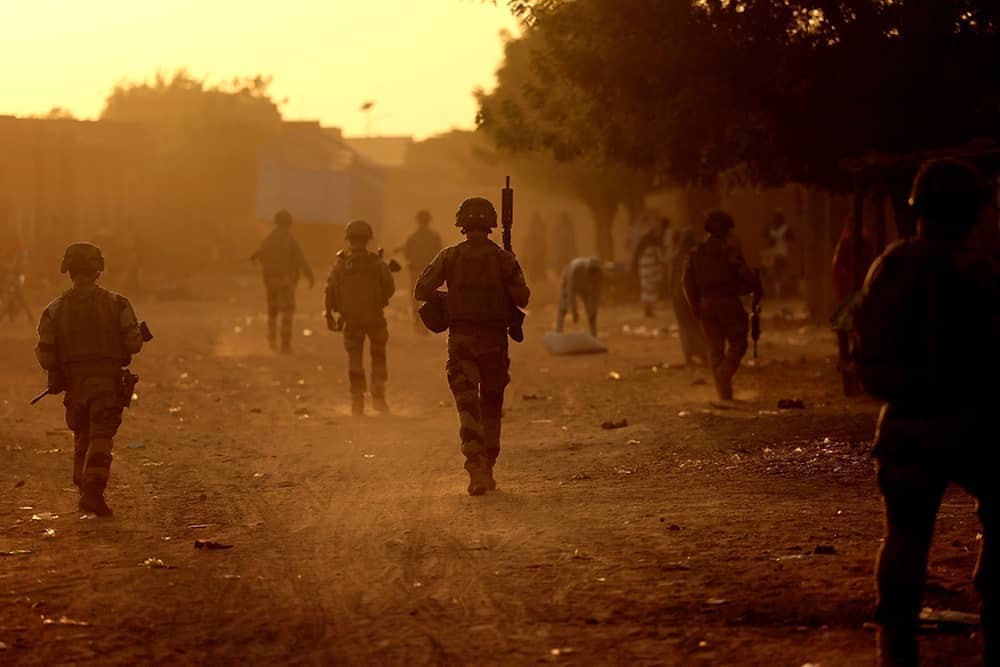In the most violent region in the world, the West is realising that it messed up. Protestors in Burkina Faso throw Molotovs at the French, American-trained soldiers overthrow their governments, and Malians wave Russian flags.
After a two-decade American deployment in the Sahel in Africa, the Pentagon has finally admitted that the area is getting worse. A paper quietly published last month, and reported on this week, described a ‘deterioration of the security environment’, and said that violence this year had ‘expanded in intensity and geographic reach’. It predicted 2,800 ‘violent events’ in the Sahel in 2022, more than double last year’s number.
Some aren’t surprised that the West has failed. Aneliese Bernard, who used to work alongside US special forces in Niger, told me that western officials in the Sahel often just aren’t interested in the area. Western diplomats usually prefer to stay in the ‘ivory towers’ of their embassies. The 2012 attack on American diplomatic buildings in the Libyan city of Benghazi gave officials an excuse to stay inside.
Western military support isn’t joined up. The UN has two ‘Multidimensional Integrated Stabilization Missions’
Bernard remembers when she started working at the Niger embassy in 2017, a few weeks after four American soldiers were killed by an Islamic State Greater Sahara (ISGS). If officials had done their job properly, she says, they would have noticed that the area the American soldiers were in, Tillaberi, was home to an ethnic group, the Fulanis, who were being targeted by ISGS recruiters. But there was no mention of the Fulanis, a minority of between 30 to 40 million, in any of the embassy’s briefings, memos or classified documents, going back to the 1970s. No one in the embassy really knew who they were. ‘How can we expect to be successful if we’re sending the D-team of diplomats out there?’, a former official says.
Meanwhile, western military support isn’t joined up. The UN has two ‘Multidimensional Integrated Stabilization Missions’, in Mali and the Central African Republic. The US, EU and France have their own operations. An undisclosed number of western special forces sometimes work alone, sometimes with each other, and sometimes with a ‘Multinational Joint Task Force’ made up of Benin, Cameroon, Chad, Niger and Nigeria. Across the region, western-backed groups are inefficiently sent into the same areas on similar missions.
There’s confusion in Western strategy too. Five years ago, France put forward a UN resolution to make a 5,000-strong African security force in the Sahel. American and British officials weren’t told about the plan beforehand, and so, for a while, refused to support it. More recently, the US and France disagreed over who would lead the UN mission in Mali. ‘It’s a total clusterf*ck’, Bernard says. The Royal United Services Institute (Rusi), a think tank of the British defence establishment, prefers ‘crowded regional security environment’.
For these reasons and others, as Aidan Hartley and Mark Galeotti have written about before, the Sahel is turning on the West. The Wagner Group of Russian mercenaries have now replaced western diplomats in Mali and the Central African Republic, and have contracts in Libya and Sudan. The new junta in Burkina Faso is friendly with Russia too. Chad’s military ruler, who had promised elections this month, has just extended his ‘transition period’ for another two years. The West might not be able to rely on him for long. ‘The French better hold on tight if they want to remain in French Afrique,’ said one Chadian officer with close ties to the junta. ‘I see a lot of movements towards Russia’.
The West’s only real friend in the Sahel now is Niger, a country landlocked by Libya, Chad, Burkina Faso and Mali. French operations in the region are headquartered there, and the US has more than 800 troops stationed in the country. Nigeriens seem happy to have us, for the moment. President Mohamed Bazoum, who was elected in April in one of Niger’s few peaceful transfers of power, wants to increase the size of his army from around 20,000 today to 100,000 by 2030. He wants his soldiers trained by the West, and for them to use our weapons.
But diplomats in Niger says the country is fragile. It has the highest birth rate in the world, and is also one of the most impoverished. Mixing a young, poor population with a heavily armed state might end quite badly. Terrorism, too, is getting worse. Boko Haram continues to attack villages in the south of Niger, and in the north, ISGS works with the local al-Qaeda cell, Jama’at Nasr al-Islam wal Muslimin (JNIM). There are worries that the two groups could merge. They might then join with Islamic State West Africa Province, who target the border area between Chad, Niger and Nigeria.
The Sahel is Africa’s most anarchic region. The West made it madder. Moscow can try to step into the void, but it might be more trouble than it’s worth.






Comments